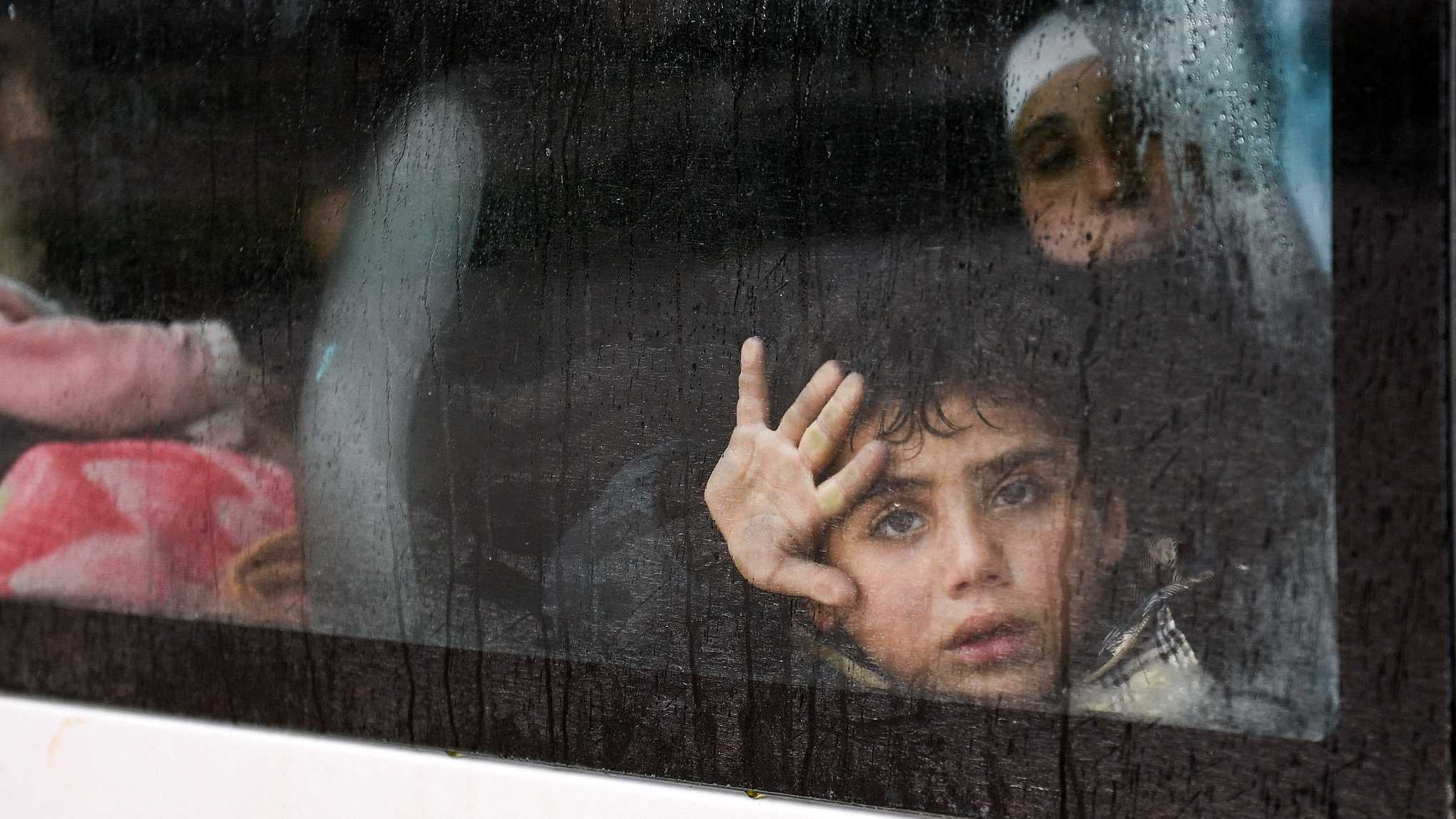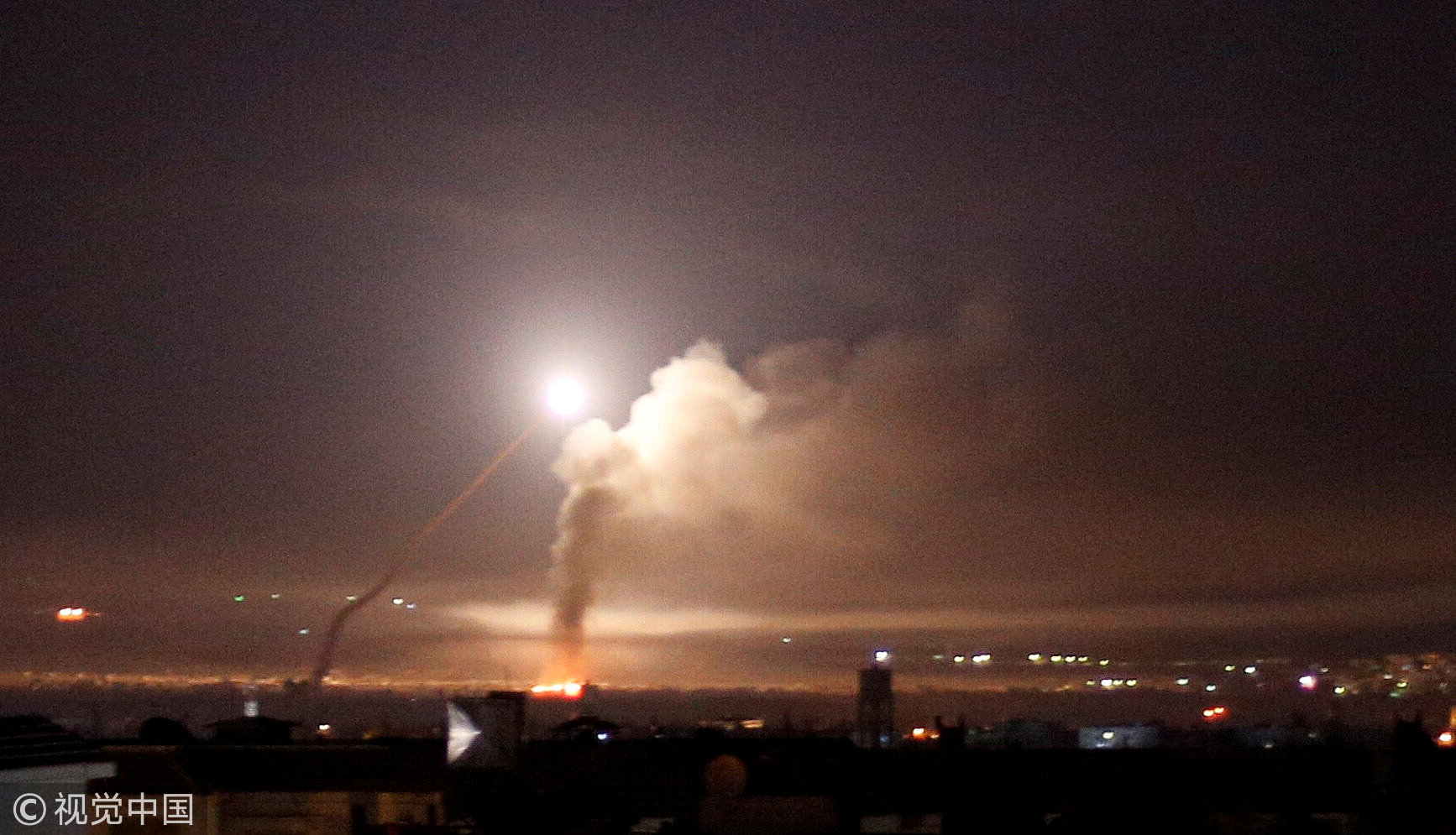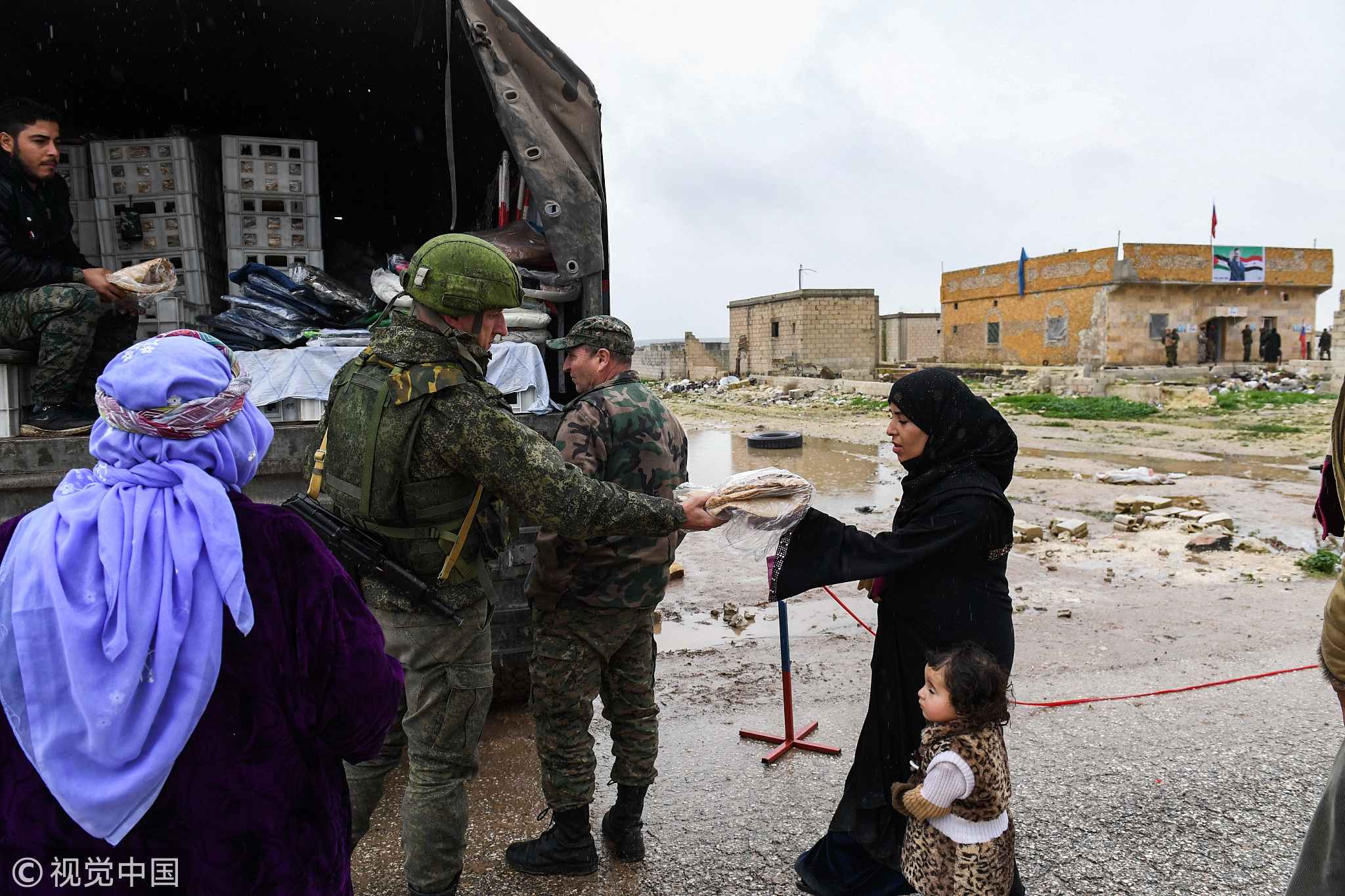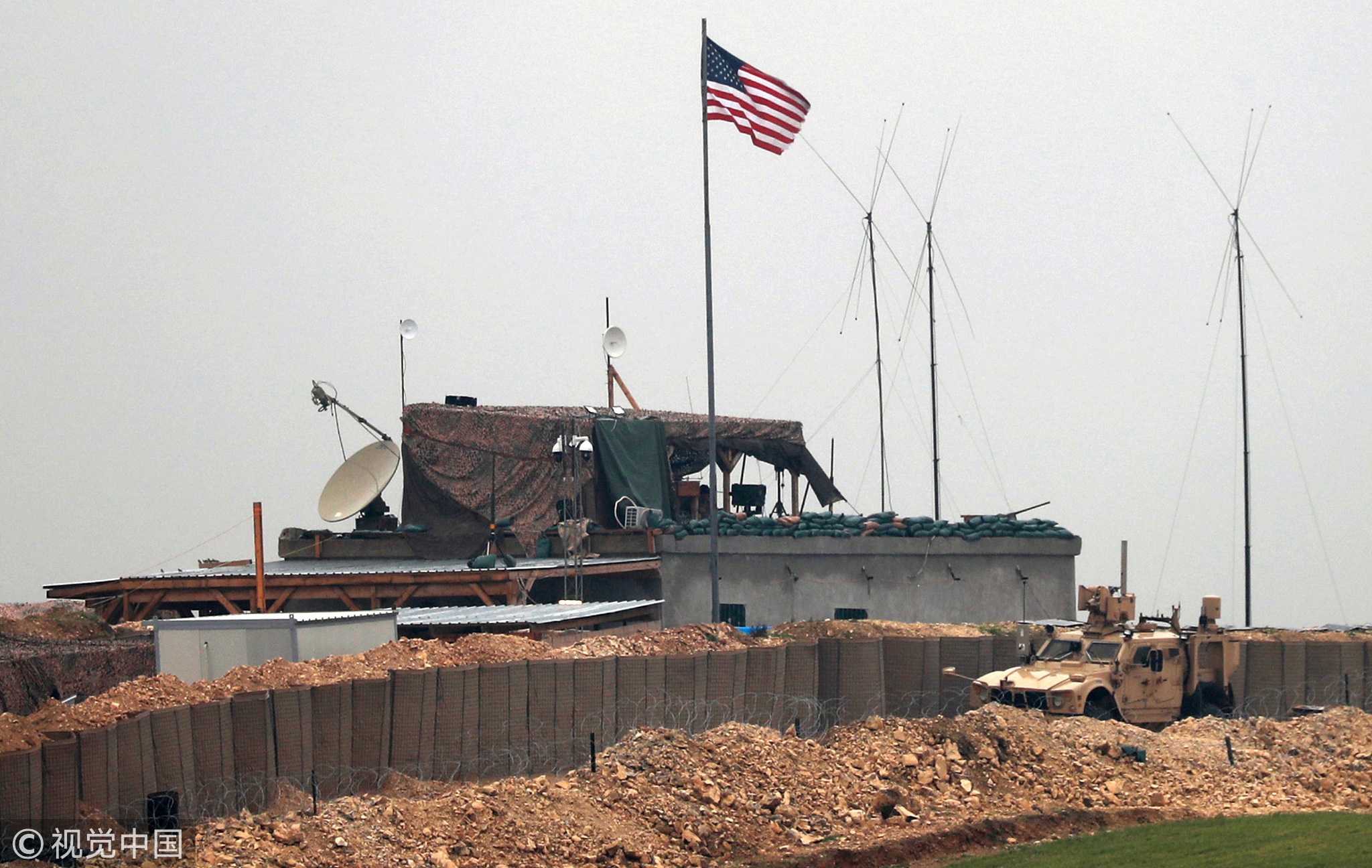
Opinions
20:58, 29-Dec-2018
Opinion: Will scars in Syria heal in 2019?
Updated
20:11, 01-Jan-2019
Wang Jin

Editor's note: 2018 was an eventful year, with many historic moments that changed the fates of millions of people around the world. They were more than just narratives in the headline news but major twists and turns that shaped the world order in different dimensions. The cloud over war-torn Syria in 2018 has never left, with new challenges ahead from the planned U.S. withdrawal. How will Syria fate unfold in 2019? Wang Jin, a research fellow of the Syria Research Center at the Northwest University of China shares his insights with CGTN.
This year has been remarkable for Syria. The internal warfare de-escalated in 2018, government forces retook superiority in the battlefield, the Daesh was eliminated, the power of the government was reinforced, the pace of negotiation accelerated and the U.S. decided to withdraw all its troops from the country. At the same time, Syria's economic hardship was alleviated, while the government's policy became tougher with its insistence on retaking all national territory.
However, risks remain in the "post-warfare" period. The "direct" competition between the United States and Russia over Syria is being transformed into "indirect" rivalry and new geopolitical contentions are emerging while social and economic crises still remain.

Missile fire is seen from Damascus, Syria, May 10, 2018. /VCG Photo
Missile fire is seen from Damascus, Syria, May 10, 2018. /VCG Photo
The Syrian civil war could be attributed to two dimensions. On one hand, the internal political unrest that erupted in early 2011 was a result of worsening economic circumstances and public dissatisfaction with the government. However, on the other hand, the political unrest was taken advantage of by regional and international powers, such as the U.S., Europe, Saudi Arabia and Turkey.
The civil unrest finally led to a full-blown civil war that drew the involvement of all the major regional powers. Therefore, the future of Syria will be determined by two dimensions, namely how the different political and military blocs readjust their stances and positions, and how the different regional and international powers coordinate their interests and concerns over Syria's future.
In 2018, new developments emerged in Syria. First, ISIL is being eliminated in Syria, and the government successfully retook more areas from rebels. In Central Syria, government forces expelled the Syrian rebels from the Eastern Ghouta area near the capital city Damascus; in southern Syria, government forces recaptured the Derra province, which had been occupied by Syrian rebels since early 2011. In northern Syria, Syrian government forces are closely monitoring the Syrian rebels in Idlib province, where the "buffer zone" was established and co-supervised by Russia and Turkey.

A Russian soldier passes out food aid to Syrian civilians as they cross from rebel-held areas in Idlib province into regime-held territories on December 27, 2018. /VCG Photo
A Russian soldier passes out food aid to Syrian civilians as they cross from rebel-held areas in Idlib province into regime-held territories on December 27, 2018. /VCG Photo
Second, several new rounds of diplomatic efforts were made by international and regional powers to facilitate the peace process in Syria. Several rounds of talks and conferences were organized in Geneva, Sochi, and Astana by international society, and the constitution drafting committee is being organized by Russia to help start the political reconstruction process in Syria.
Third, the Syrian refugee problem continues and it is highly urgent for the international society to provide more assistance to help the social and economic reconstruction process. There are more than 6 million Syrian refugees in neighboring states such as Lebanon, Turkey and Jordan and in Europe. With limited assistance and help, most of the Syrian refugees are suffering hardship and severe living conditions.
At the end of the year, Donald Trump dropped a "bomb" by unexpectedly announcing that the U.S. will pull out all of its 2,000 troops from Syria. Given that he has already repeated his 2016 campaign trail promise that he was not going to continue America's heavy military presence around the globe, this decision might seem less surprising, but the retreat of the U.S. could leave a vacuum of power with new competition and conflict arising between regional powers over Syria.

U.S. forces' vehicles and structures are seen on the outskirts of the northern Syrian town of Manbij on December 26, 2018. /VCG Photo
U.S. forces' vehicles and structures are seen on the outskirts of the northern Syrian town of Manbij on December 26, 2018. /VCG Photo
Given all the newest developments in war-torn Syria, is there hope for peace and prosperity in the coming year?
So far it seems that the challenges will continue in 2019. First, the possibilities of war still remain. In Idlib province, the Syrian government still hopes to reunify its territories and might launch a military offensive against Syrian rebels in this region. Meanwhile, the rebels in northern Syria supported by Turkey launched a massive military offensive against Afrin enclave in early 2018, and are preparing new offensives against Syrian Kurdish military group "Syria Democratic Forces" (SDF) led by the Syrian Kurdish Democratic Union Party (PYD), which is defined by Turkey as the Syrian branch of "terrorist group" Kurdish Workers' Party (PKK) in Turkey. If the U.S. withdraws, the SDF would lose an important source of support. A military offensive by Turkey and Turkey-backed Syrian rebels could be launched and translate into a full-scale military conflict in northern Syria.
Second, from its domestic political arena, there are still obstacles in the Syria peace process. Both Syria government and political opposition factions are still debating over the future political power arrangement, while at the local level, Syrian rebels supported by Turkey and Syrian Kurds backed by the U.S. have respectively established their local authorities in northern Syria. How to narrow the gap and different stances between different political blocs might largely determine the success of Syrian political reconstruction.

An aerial view of a refugee camp flooded after heavy rain on December 27, 2018, in Idlib, Syria. /VCG Photo
An aerial view of a refugee camp flooded after heavy rain on December 27, 2018, in Idlib, Syria. /VCG Photo
Third, it is still difficult to coordinate the different attitudes of international and regional powers. There are three major international mechanisms, the Geneva peace process led by UN, U.S. and Europe; the Sochi process led by Russia, and the Astana process led by Russia, Turkey, and Iran. But the mechanisms mean more complexities to facilitate the peace process because more involvement means more diversified concerns and interests. How to coordinate the different concerns and interests of the U.S., Europe, Russia, Iran, Turkey, Saudi Arabia, Israel and other powers' concerns over Syria, is an important obstacle ahead for the Syria peace process.
In addition, Syria needs more assistance from the international society. It is estimated that the country needs nearly 1 trillion U.S. dollars to reconstruct the war-torn state and help settle millions of refugees at home and abroad. Given its increasing fiscal deficit and poor economic conditions, and the unwillingness of the U.S., Europe and Saudi Arabia to provide economic assistance because of their poor ties with the Syria government, how to secure enough financial assistance is a major challenge.
It seems now the hope of a peaceful Syria is bleak in 2019. With America's withdrawal, a new round of competition will emerge between different powers with their own agendas. But it is never too late to call for international cooperation to unravel the Syrian peace issue with such a high level of complexity and sensitivity.
(Cover Photo: A Syrian boy looks through the glass window of a bus carrying him and others to the Abu Duhur checkpoint separating rebel-held areas and regime-held territories in the northern Idlib province, on December 27, 2018.)
(If you want to contribute and have specific expertise, please contact us at opinions@cgtn.com)

SITEMAP
Copyright © 2018 CGTN. Beijing ICP prepared NO.16065310-3
Copyright © 2018 CGTN. Beijing ICP prepared NO.16065310-3